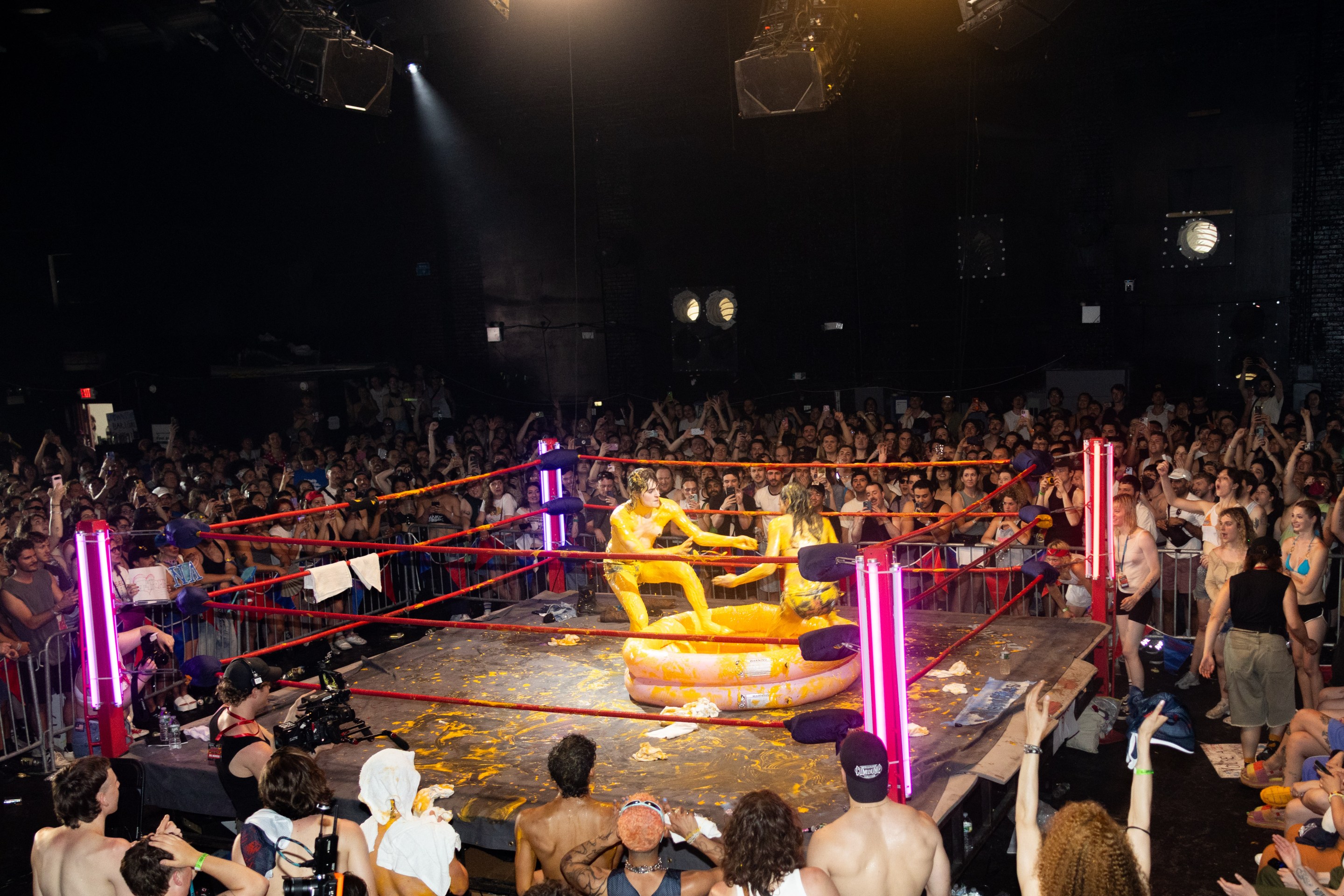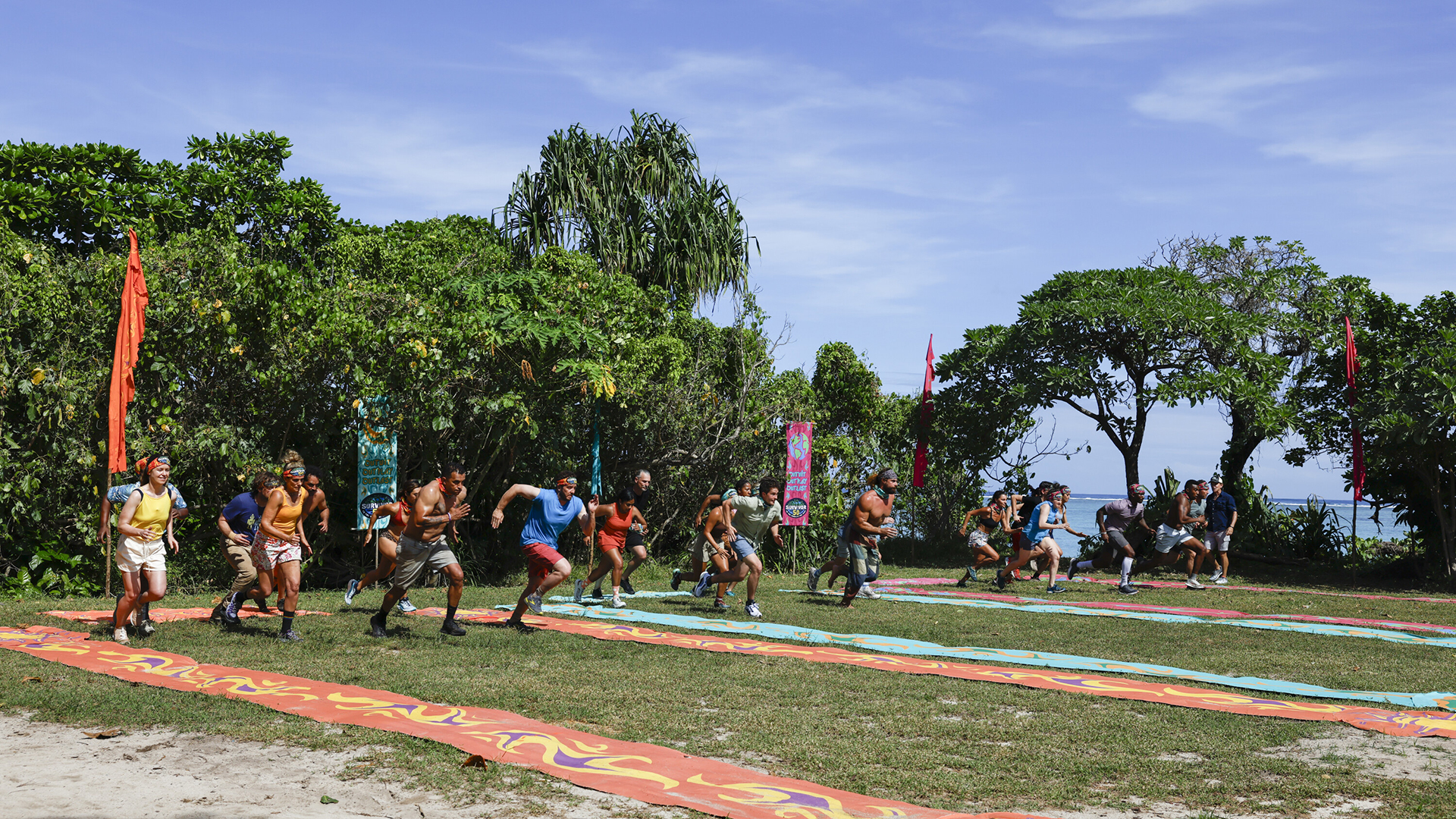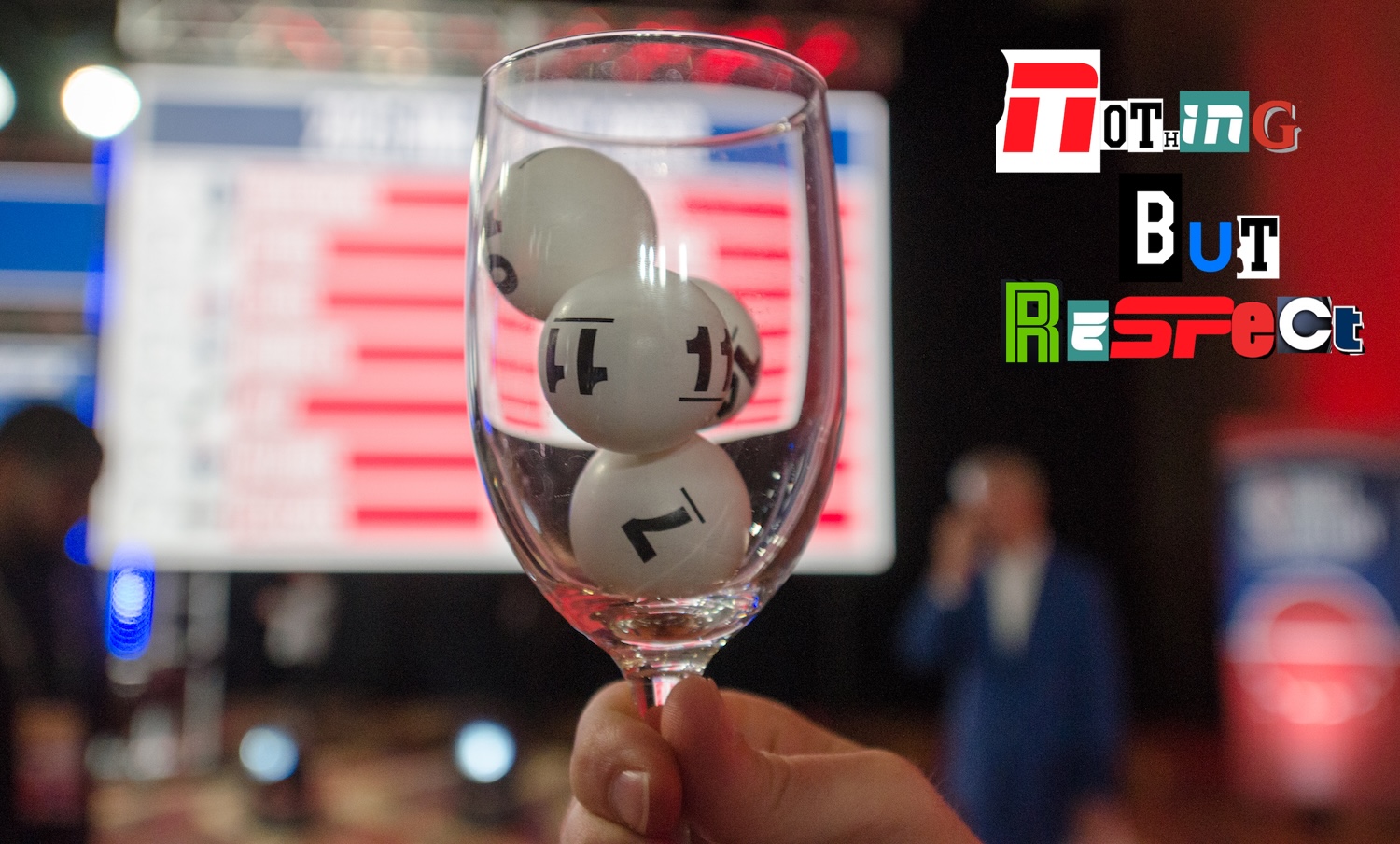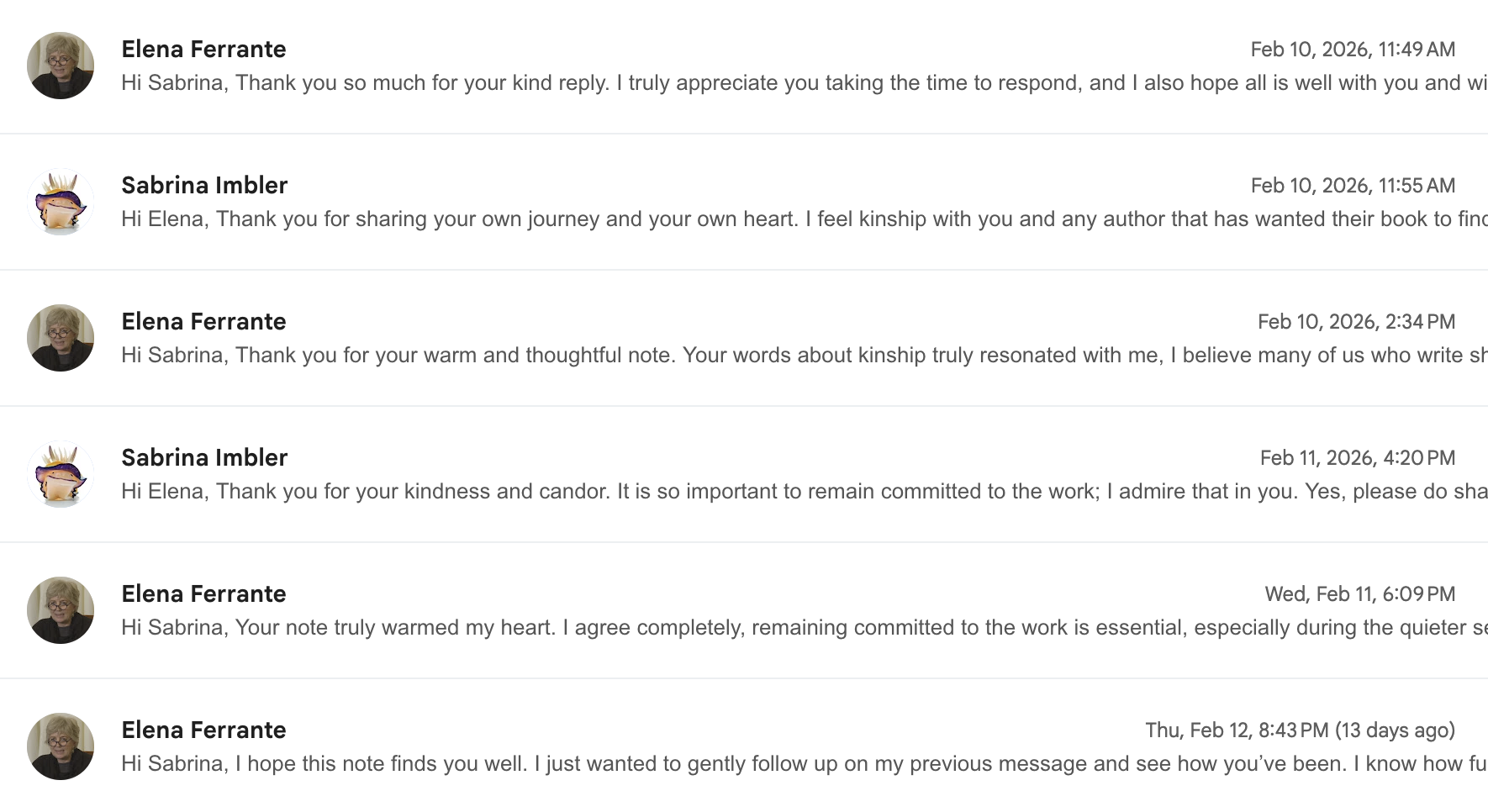BROOKLYN — The first year, they wrestled in a tub of lube. The second year, it was crushed tomatoes and cooked noodles. The third? Baked beans. But the first I saw of the Twinks vs. Dolls Olympics was that one Instagram story screenshot: a couple dozen people crowded into the backyard of the Brooklyn bar Singers surrounding a smaller circle of smoke-clouded contestants huffing back those darts as fast as they could. “Twinks vs dolls cigarette race,” the text read. That image’s Twitter virality catapulted the first annual Twinks vs. Dolls Olympics, a decidedly offline affair, into something much grander.
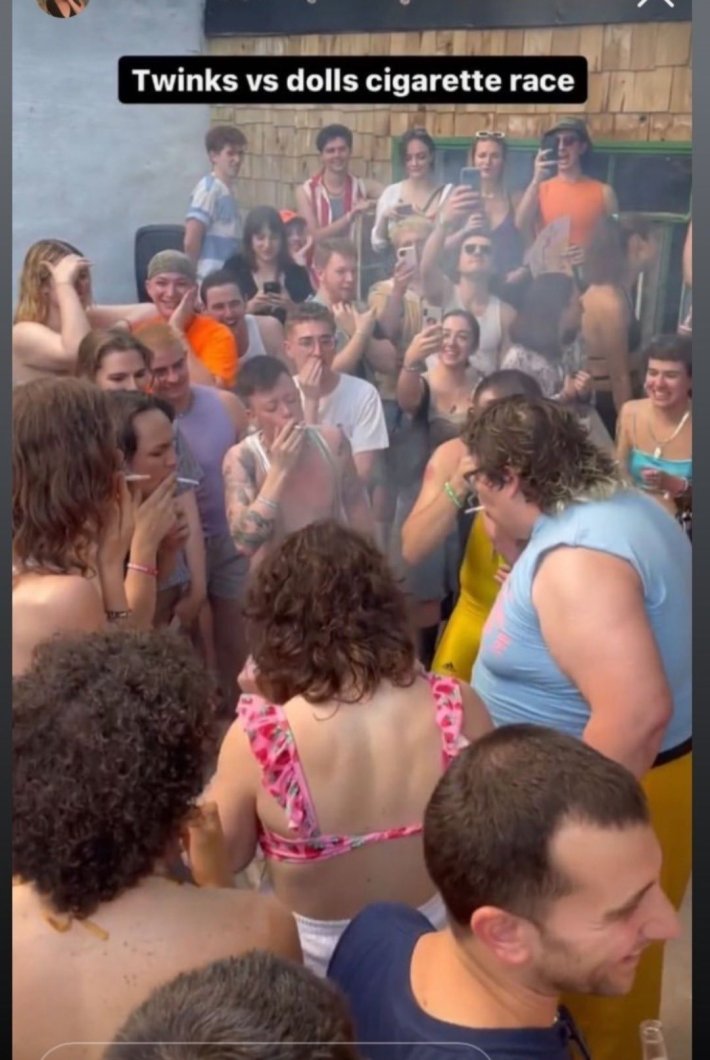
This June 2022 day formed the founding myth of the Twinks vs. Dolls Olympics: an annual series of deliberately stupid, unfailingly funny physical and psychological trials between champions selected to represent two queer subgroups, skinny young gay men and glamorous trans women. Originating as a send-up of the self-seriousness of New York City’s Pride weekend raves, parades, and protests, a friend group’s goofy idea is now a niche entertainment phenomenon.
Since that first year, the choice to keep scaling it up has been simple, said Singers co-owner and namesake Mike Guisinger. “It seems like a lot more people want to come to this, so we should put on a bigger party—a bigger show,” he told me.
The popularity of Twinks vs. Dolls means more than people wanting to watch cat fights. After years of hard-won progress toward civil and social recognition, queer people—especially trans people—are on the front lines of the right’s redoubled attacks on the marginalized and vulnerable. At a converted Sunset Park warehouse on the day before the official Pride parade, throngs of people turned out to resist ideas of how gay people ought to behave. In rejecting respectability and embracing vulgar, lowbrow art, Twinks vs. Dolls joins a lineage of gay cultures that made no apologies for their crudest elements.
The fourth annual Twinks vs. Dolls (full title: “Twinks vs. Dolls Olympics IV: Total Carnage”) took place 10 years and two days after the Obergefell decision legalized gay marriage in the United States. Tickets had gone for between $40 for early birds and $100 for VIPs. (Singers provided me with a free VIP ticket to cover the event.) Two bars upstairs and one bar downstairs sold drinks ranging from $3 bottled water to the $16 “Frozen Carnage,” a frozen mix of pink lemonade and vodka. The elevated VIP section overlooked the judges’ table and boxing ring from a platform up a few stairs. Its exclusive bar was a small folding table with a few liquor bottles and a cooler. While there were no slushie machines for the Frozen Carnage, the water bottles were at least free to be plucked from large buckets of ice. These, however, were soon blocked by spectators crowding the front rail because, since the VIP section was higher than the ring, most of the spectators there had a harder time seeing the action than anyone down in the crowd. For this reason, I didn’t mind too much when the VIP area hit capacity and security wouldn’t let us back up there.
“People want to come to this, and you’re just scaling up—in the service of trying to let more people who want to experience that show up and have fun,” technical director Kaye Loggins told me.
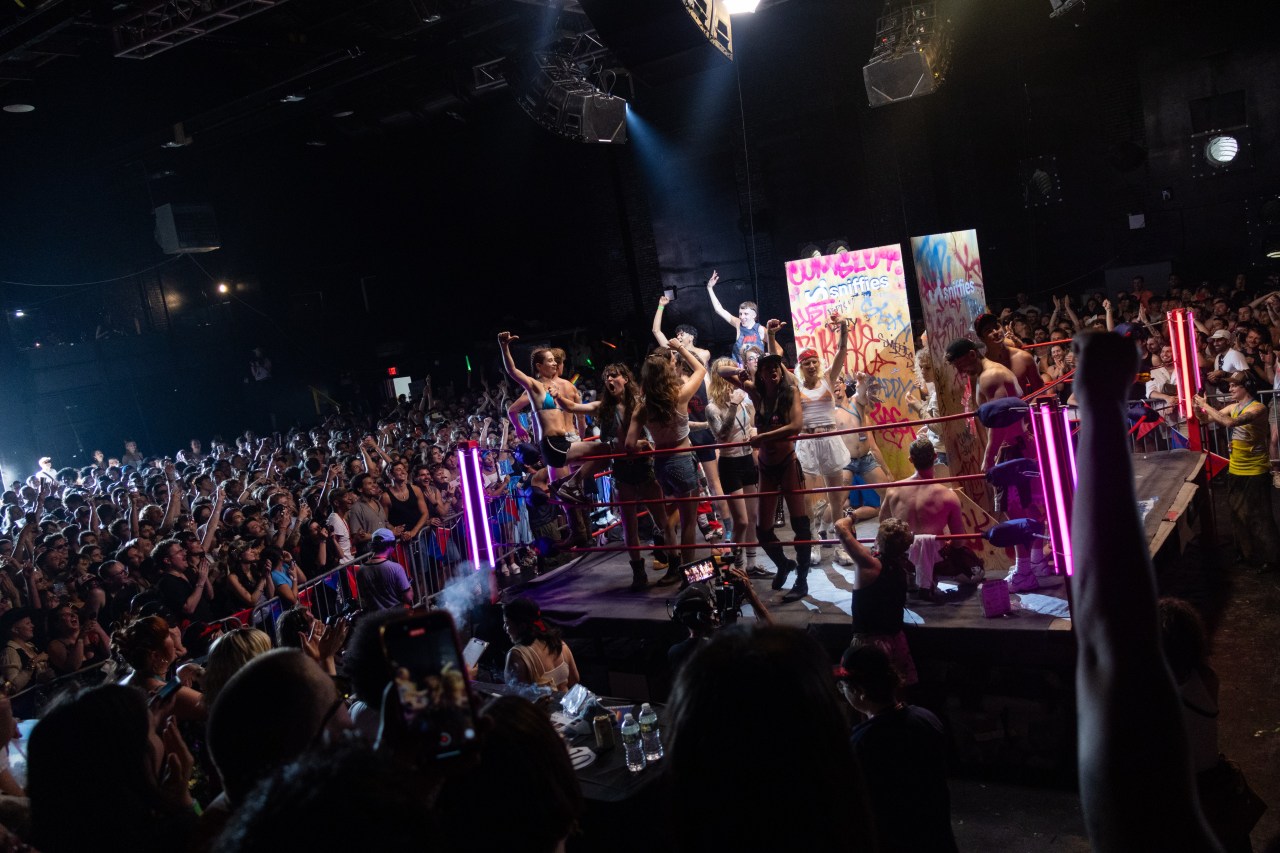
Loggins pointed out some inherent tensions to an event like this. Something so out there requires a certain level of enthusiasm from a culturally engaged population—but fielding enough participants, attendees, and staff would be too expensive for the event to be run without outside help. Hence the sponsors. In the smaller, cooler basement area—presented by gay hookup site and app Sniffies—vendors plied wares like disposable cameras, “nano-enhanced” THC gummies, “Faggots do it better” baby tees, and freaky 3D-printed transfeminine figures. The good, honest effort behind these projects did little to bolster their tenuous connection to the event at hand.
Outside the roped-off couches serving as a green room for the performers, I chatted with a friend who was competing for the Dolls. By the casting criteria Twinks vs. Dolls co-creator P.E. Moskowitz described to me, she would always have been a strong contender. The selections had been made by the team’s “sick and twisted minds,” they said, deciding who, for the purposes of the spectacle, looked the twinkiest and the dolliest. Above all, they sought participants with a ruthless competitive streak who didn’t take themselves too seriously.
My friend wrote in her application that she was “a strong competitor with off-field issues,” she told me. When I asked her why she thought the organizers had selected her, she laughed.
“I know them,” she said.
In the sunny outdoor area, I talked to Michael Villanova, a political science Ph.D. candidate and adjunct lecturer at The Graduate Center, CUNY, who was competing for the Twinks. He said he had been drawn to the event by the rare chance to transgress taboos on shame while channeling the thrill of public humiliation.
“It’s also probably a once-in-a-lifetime thing, because twink death is real, and I’ll probably be aged and old very soon,” he added. “We’re like mayflies.”
Apart from the competing twinks and their friends, everyone I spoke to was backing the Dolls. The comedian and actress Ivy Wolk (Anora, English Teacher), on the scene as a correspondent for the independent web broadcast project New York Television, was a Dolls fan—because they win every year, she said, and because she is a feminist.
“One thing that I love about this place is that respectability politics go out the window, and no one’s concerned with appealing to heterosexual norms or culture,” Wolk said. “It’s just rowdy and nasty, the way that gay people should be. That’s where all the best queer art came from—from gay people being rowdy and nasty and horny and violent.”
Performances from a series of bands to kick off the event started late and were interspersed with periods of waiting. After the last musical act, the audience was abruptly directed to exit the venue to make way for the setup of a “surprise.” I was already surprised that the competitions had yet to begin, two hours past the scheduled time, but we needed to wait a little longer for the entrance of the monster truck—license plates reading “SIZE QUEEN”—that had been prominently parked in the outdoor area beside a fleet of Harley-Davidsons.
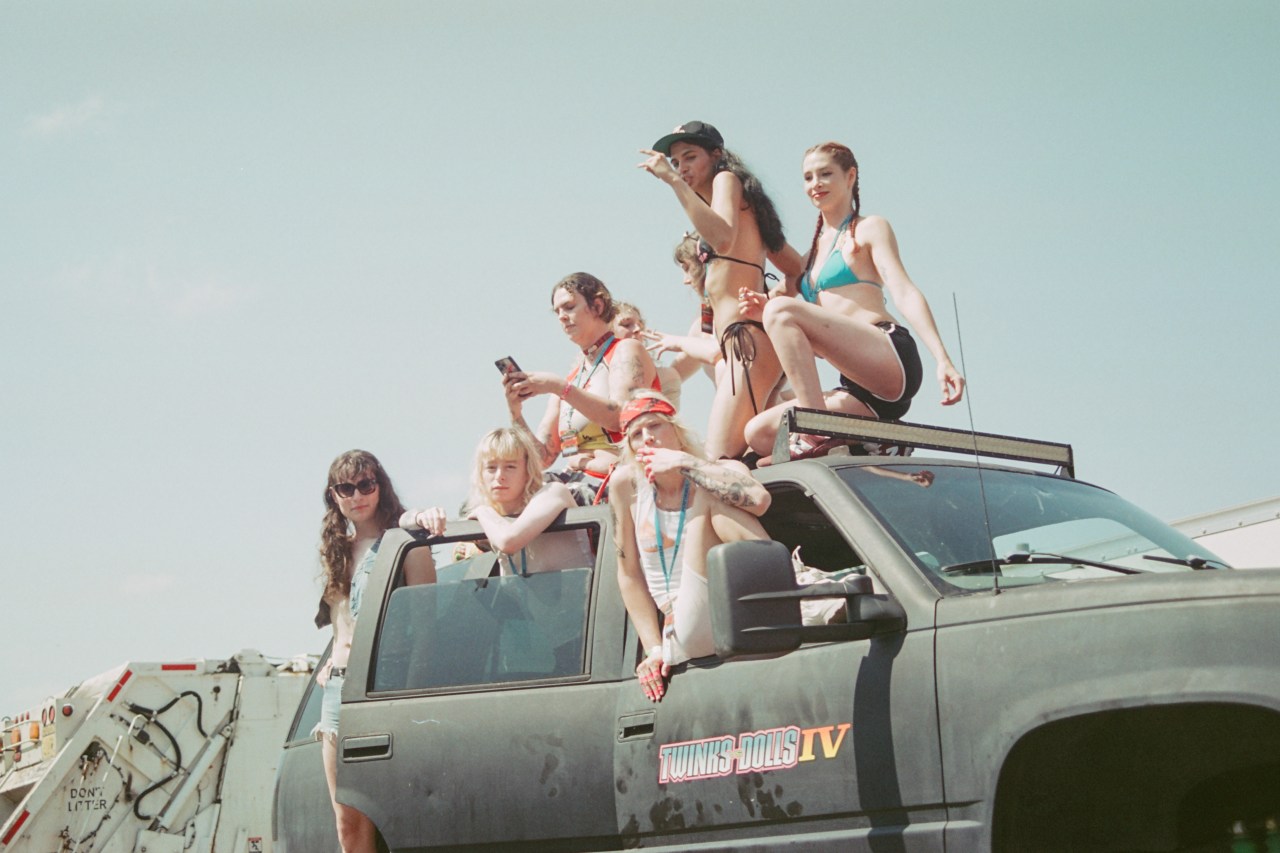
Security and staff attempted to herd the crowd out of the building to clear a lane for the vehicle. Over the PA, the emcee implored us to keep moving, and security barked at people trying to find a way out around barricades. Still, there were just too many bodies moving not very quickly. I shuffled forward, casting an occasional apologetic glance toward nearby event staff. “This is becoming unbearable,” I heard someone in our flock complain.
Outside, relegated to asphalt on a shadeless summer day, I accepted an offer of sunscreen from one of the motorcyclists. The outdoor crowd of a couple hundred tried to move back inside a couple times, only for harried organizers to swoop in to clear us out again. Back inside the venue, unseen speakers addressed the crowd. We did not know how or when those inside had gotten back in, or if they had remained there the whole time. It was unclear why we needed to stay outside, let alone when we could return.
“Every one of you sweaty, hot queers is proof we can never be erased,” the voice from inside said. “…Like cattle;” “…a disaster;” “…kind of a shitshow,” I heard outside.
Yet these misgivings were overcome by the swell of excitement as the moments of competition approached. The diehard Dolls partisans in the outdoor crowd broke into a chant as the enemy team rode into the warehouse on the bed of a small truck: “Kill those Twinks!”

When event staff stopped rebuffing our attempts at re-entry, the outdoor crowd streamed back in, eager for mayhem, our appetites whetted by hours of dehydration and impatience. A friend told me they had waited an hour in line for one of the bars where bottled water was being sold. Guisinger later told me that the bartenders were trained to give water out to anyone who looked like they needed it, but I wasn’t aware of that policy on the day of the event. At least they had learned one lesson from Twinks vs. Dolls III—they didn’t run out of water entirely.
Another difference this time around was the putatively air-conditioned venue, but the open doors and body heat of what Guisinger told me was close to 4,000 people, packed into an advertised 3,000-capacity venue (with the doors open to the summer heat) were no match for the AC. I, and everyone around me, became soaked in sweat. Emotional and thermal energy alike flowed freely through the pressed-in crowd. A couple of the dolls shared a cigarette onstage.
My worries that the DIY character of the event had been smoothed down by corporate sponsorships had long ago been assuaged, and the Games themselves showed no corporate timidity whatsoever. A popsicle-sucking contest featured Sniffies-branded mock glory holes. MAC Cosmetics provided the lipstick that contestants were directed to insert inside themselves and create drawings.
For the climactic wrestling, two dolls and two twinks were selected on unspecified criteria. The event had started late, had been running late all afternoon, and a key member of the small production team had been temporarily indisposed, forcing organizers to cut the remaining contests that would have winnowed the field—as well as the halftime performance—from the show. Instead, shirtless hunks brought out an inflatable kiddie pool and emptied into it large cans of this year’s combat substrate: an opaque, viscous, golden liquid, slopping onto the pool vinyl in long, wet gobs. It was nacho cheese.

Skeins of processed cheese product leapt into the air as the final competitors grappled for purchase in the steadily deflating pool. The heat-swelled baying of the crowd rose to a roar as each doll vanquished her assigned twink. Two girls were left standing. The model Tommy Boy and comedian Chloe McCormick, with a few running strides from opposite sides of the ring, leapt into the cheesy slick that had been the pool. Seizing one another’s brightly slimed bodies, they went to the ground and writhed in exhausted struggle, until Tommy finally forced Chloe over the boundary of the pool’s remains. Tommy had claimed the win—or had she? By God, that’s Marley’s music!
Spotlit on a catwalk above the crowd, past champion Marley Gotterer issued a challenge to the weary victor. Assuming a heel role familiar to past attendees, Marley engaged Tommy in a one-on-one cigarette race (the classic team cigarette race had been cut for time). Even after two rounds of wrestling, Tommy’s lungs held on to outsmoke Marley. By sunset, a new champion had been crowned—just in time for the crowd to hastily vacate the venue for cleanup.
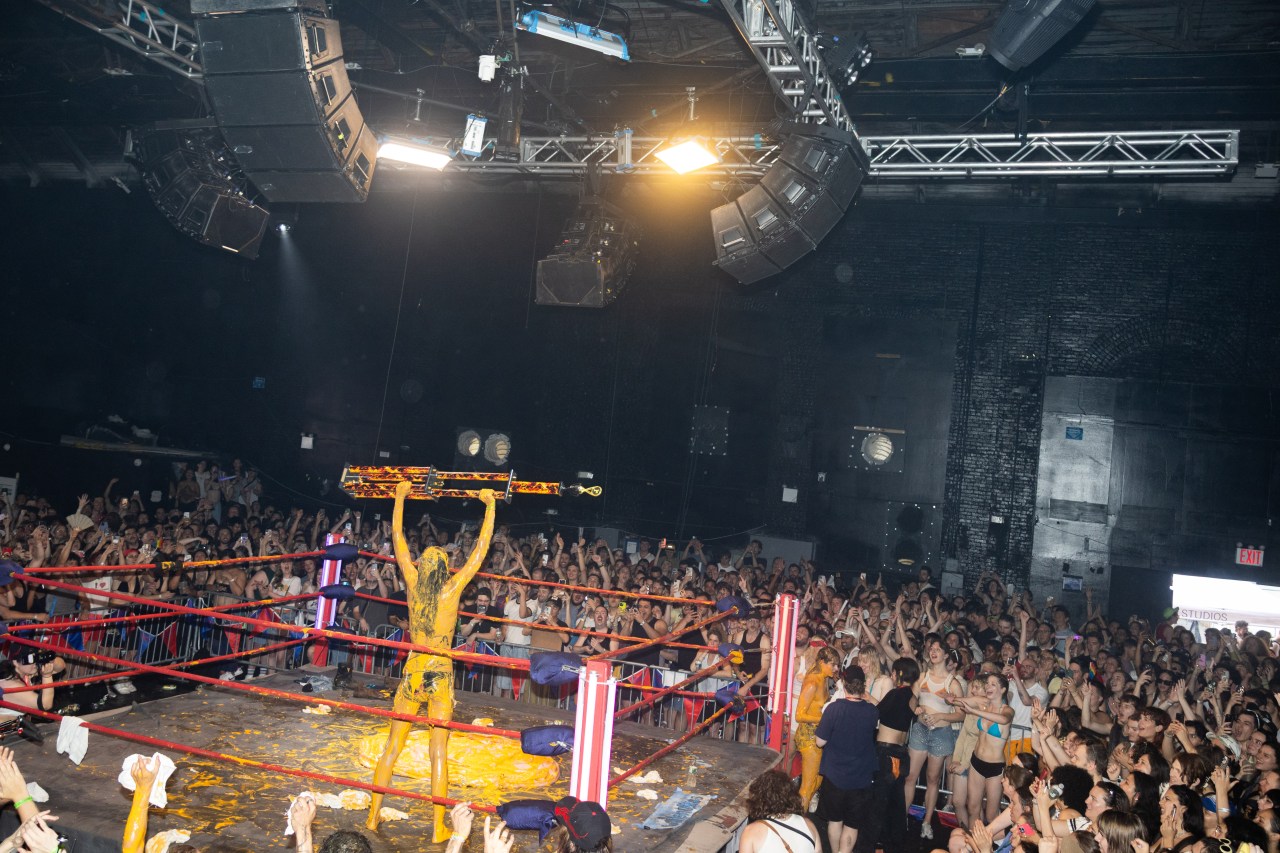
Every year of Twinks vs. Dolls promises greater debauchery and grander spectacle. Online popularity, while threatening to undermine any event’s core appeal, continues to drive ticket sales. Demand grows, and with it, ambition. The event’s local virality blew it up out of the insular, informal context from which it originated, leaving the organizers to navigate its annual increase in attention.
“When things become meme-ified, that spells the death of them,” Moskowitz said.
Dolls alum Sibyl Self recounted to me on Saturday how, in that first year’s lubed-up wrestling match, she took down her assigned twink with a leg sweep. During the summer of 2022, she lived in the same building as Moskowitz and hung out with the friend group that surrounded the launch of both Singers and Twinks vs. Dolls. The first Olympics was beautiful, Self said—but also, things began changing soon after it blew up. Two contestants started their comedy duo. Another’s films started getting serious funding. Moskowitz landed a major book deal.
And Singers itself became a Brooklyn hotspot. Its creatively absurd, unabashedly debaucherous events have offered a bold course for post-pandemic New York queer nightlife. They challenge you to make yourself feel uncomfortable and alive. And when they demand something of their attendees—in this case, sweat, stamina, and dignity—it injects some soul back into an increasingly flattened American culture.
Fascism, Moskowitz told me, thrives on a bland, repetitive, spiritually empty culture. Singers instead embraces depravity while eschewing decadence. The stars will always be the twinks and dolls chosen to compete, but the Twinks vs. Dolls Olympics promise catharsis to anyone willing to debase themselves to get it—whether through direct immersion in nacho cheese or enthusiastic proximity to these expressions of queer debauchery. If you let go of respectability and sink into its vulgarity, Twinks vs. Dolls will cleanse you with filth.
Outside the warehouse, as revelers dispersed into the warm summer evening, Chloe and Tommy remarked to each other that the canned nacho cheese sauce had been spicy. Having given up on a search for a hose, they rinsed themselves off with bottles of Poland Spring.
